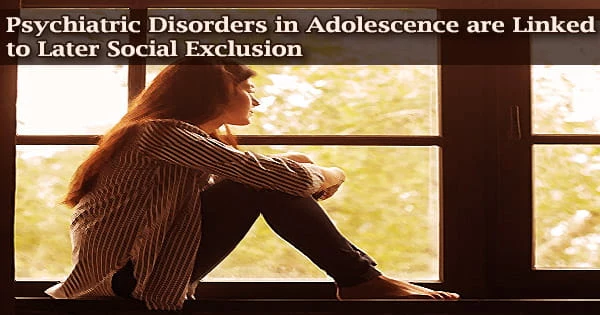As young adults, adolescents who had been diagnosed with a mental health issue were frequently excluded from the labor market and schooling. This was especially true for teenagers diagnosed with autism spectrum disorder or psychosis.
The findings were discovered in a birth cohort study of Finns born in 1987. The report was published in the British Journal of Psychiatry on October 6, 2021.
In early adulthood, over 11% of teenagers who had received a mental diagnosis were excluded from education and the labor market for at least five years. This figure was slightly less than 3% for other teens.
The findings emphasize the necessity of treating and rehabilitating people with mental health conditions in preventing social isolation among teenagers.
“To help prevent the social exclusion of adolescents, their treatment and rehabilitation require more resources than are currently being used as well as the development of evidence-based treatment and rehabilitation,” says Adolescent Psychiatrist and Doctoral Candidate Ida Ringbom from the Research Centre for Child Psychiatry at the University of Turku.
The findings are alarming because they show a relationship between mental illness and long-term exclusion from education and the labor market.
Vocational rehabilitation and tight collaboration between psychiatry and social services are important for enabling adolescents suffering from mental health problems to access the labour market. Adolescents who have not completed their upper secondary education require more targeted support because their risk of becoming socially excluded is particularly high.
David Gyllenberg
The long-term exclusion was defined in the study as a length of time spent outside of education or paid work that lasted at least five years. Teenagers who had not completed their upper secondary school and had been diagnosed with a mental health issue showed a particularly high association.
In their early adulthood, nearly half of these teenagers who had experienced psychosis and nearly three-quarters of teenagers diagnosed with an autistic spectrum disorder experienced long-term exclusion from education and the labor market.
“Vocational rehabilitation and tight collaboration between psychiatry and social services are important for enabling adolescents suffering from mental health problems to access the labour market,” says Assistant Professor David Gyllenberg who led the study.
“Adolescents who have not completed their upper secondary education require more targeted support because their risk of becoming socially excluded is particularly high.”
The study was done as part of the INVEST flagship program for the study of inequality, interventions, and the welfare state at the Research Centre for Child Psychiatry.
INVEST is a joint project of the University of Turku and the Finnish Institute for Health and Welfare, sponsored by the Academy of Finland, that aims to reduce social inequality and reform the welfare system.
The Finnish Institute for Health and Welfare is in charge of the 1987 national birth cohort. Researchers from the University of Turku, the Finnish Institute for Health and Welfare, Helsinki University Hospital, and the Itla Children’s Foundation were among the participants in the study.





